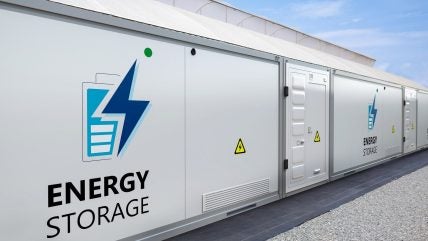
The latest edition of the European Market Monitor on Energy Storage by the European Association for Storage of Energy and LCP Delta, released on 31 March, highlights Europe’s rapid expansion in energy storage capacity, which rose to 89 GW by the end of 2024. The report also projects continued strong growth through 2030, driven by technological advancements, policy support, and other key factors. Energy storage progress in 2024 was driven by a mix of technologies. Pumped-hydro storage dominated the market, accounting for 53 GW of total capacity. Meanwhile, electrochemical storage reached 35 GW, with many installations in homes and businesses.
Key market leaders include pumped-hydro storage – Italy, France, Germany, and Spain had the largest capacities. In residential electrochemical storage, Germany and Italy remained the top markets despite a slowdown. Germany continued to lead Europe’s residential storage sector, adding over 510 000 new installations in 2024, even after a 10% decline. In commercial and industrial electrochemical storage Germany led deployment, while other European markets also saw growth. This market expanded by approximately 28%, despite challenges in the solar PV sector, particularly in Spain, France, and Italy that affected battery sales for PV optimisation. In front-of-meter electrochemical storage Italy experienced a surge in capacity, adding 1.6 GW of installations in 2024, driven by capacity market projects with mainly four-hour durations. Great Britain followed with 1.3 GW/2.5 GWh of new capacity but did not see the same level of growth.
Continued growth is expected in FoM and C&I storage areas. By 2030, increased FoM deployment, declining €/MWh storage costs, and policy advancements such as the launch of Spain’s Capacity Market will create new opportunities across Europe. Italy and Poland are set to play key roles in this expansion, with MACSE and Capacity Market-backed projects driving deployment. For C&I storage, recent EU initiatives like the Clean Industrial Deal and Electricity Market Design reform will strengthen market conditions and expand revenue opportunities in the coming years.
Long-term growth is also expected in residential electrochemical storage across Europe. According to LCP Delta and EASE, residential battery installations will continue rising, driven by falling technology costs, increasing home and transport electrification, consumer concerns over energy price volatility, more dynamic tariff structures, and innovative financing models.
The EMMES report and portal is available to EASE members here






